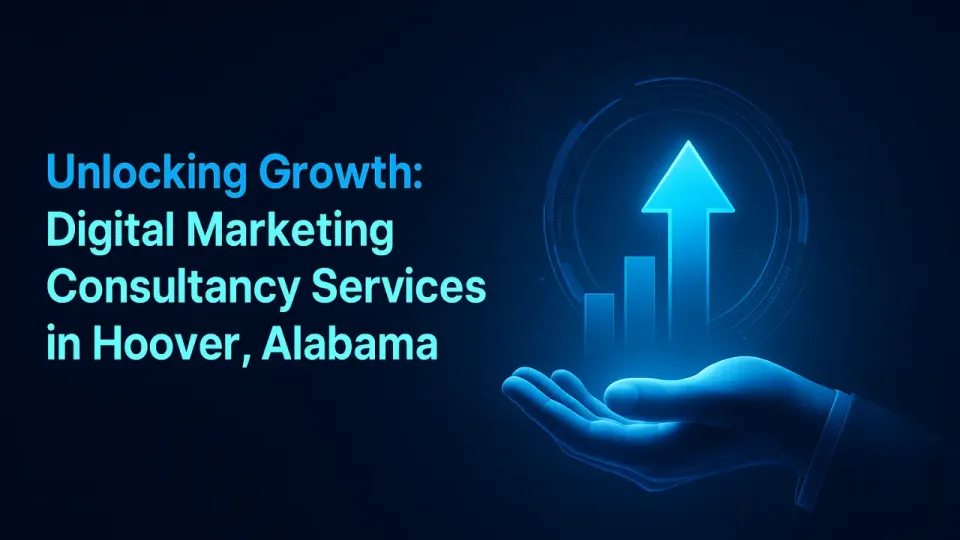SEO Best Practices for 2024

Search Engine Optimization (SEO) is an essential pillar of digital marketing, shaping how businesses connect with their audience online. In an ever-evolving digital landscape, staying updated with the latest SEO practices is crucial for maintaining a competitive edge. As we step into 2024, understanding and implementing the best SEO practices can significantly enhance your online visibility and drive organic traffic to your website. In this guide, we'll explore the most effective strategies to optimize your website for search engines and ensure you stay ahead in the digital marketing game.

Our Voiceover Process
Understanding the Basics
What is SEO?
Search Engine Optimization (SEO) is the process of enhancing your website to improve its visibility when people search for products or services related to your business on search engines like Google, Bing, and Yahoo. The better visibility your pages have in search results, the more likely you are to garner attention and attract prospective and existing customers to your business.
The Role of SEO in Digital Marketing
SEO is a crucial component of digital marketing because it helps your website appear higher in search engine rankings. This visibility translates into increased traffic and opportunities to convert prospects into customers. SEO encompasses both the technical and creative elements required to improve rankings, drive traffic, and increase awareness in search engines.
On-Page vs. Off-Page SEO
- On-Page SEO: This involves optimizing individual pages on your website to rank higher and earn more relevant traffic. On-page SEO includes optimizing content, HTML source code, meta tags, headings, and images.
- Off-Page SEO: This refers to actions taken outside of your website to impact your rankings within search engine results pages (SERPs). This primarily involves building high-quality backlinks from reputable sites, which signals to search engines that your site is authoritative and trustworthy.
Why SEO is Important
- Increased Visibility and Rankings: The higher you rank on a search engine results page (SERP), the more likely prospects are to see and click on your site.
- Web Traffic: Increased visibility translates to increased web traffic. SEO helps you attract the right audience through relevant search queries.
- Credibility and Trust: Ranking on the first page of Google signals to users that your site is a credible source. Google ranks sites it deems high-quality and trustworthy.
- User Experience: SEO isn't just about search engines; it improves the user experience and usability of your website.
- Growth: SEO is key to the growth of any business, as it helps you capture new traffic, leads, and sales.
The Evolution of SEO
SEO is not static; it evolves constantly to keep up with changes in search engine algorithms and user behavior. What worked five years ago might not be effective today. In the early days, keyword stuffing and spammy backlinks might have helped you rank. Today, the focus is on quality content, user experience, and ethical link-building practices.
In 2024, SEO continues to evolve with a greater emphasis on user intent, mobile optimization, voice search, and AI-driven content. As search engines become more sophisticated, so must your SEO strategies.
The Importance of Staying Updated
The digital landscape is ever-changing. New trends and algorithm updates mean that what works today might not work tomorrow. Staying updated with the latest SEO practices ensures that your website remains competitive. Following industry blogs, participating in forums, and attending webinars are excellent ways to stay informed.
Understanding these basics sets the foundation for more advanced SEO practices. With a solid grasp of SEO fundamentals, you can start implementing strategies that will drive organic traffic to your site and improve your search engine rankings in 2024.
Why SEO is important for your business
Keyword Research and Optimization
Keyword research is the cornerstone of any successful SEO strategy. It involves identifying the words and phrases that potential customers use when searching for products or services related to your business. By understanding what your audience is searching for, you can tailor your content to meet their needs and improve your chances of appearing in search results.
The process of conducting keyword research begins with brainstorming a list of relevant keywords. Think about the terms your customers might use to find your products or services. Once you have an initial list, you can use various keyword research tools like Google Keyword Planner, Ahrefs, SEMrush, and Moz. These tools provide valuable data on search volume, keyword difficulty, and related keywords, helping you refine your list and focus on the most impactful terms.
Analyzing your competitors can also provide valuable insights. By looking at the keywords your competitors are targeting, you can identify what works in your industry and discover opportunities to differentiate yourself. Pay particular attention to long-tail keywords, which are longer and more specific phrases. While they may have lower search volumes, they often have higher conversion rates because they target users who are further along in the buying cycle.
Once you’ve identified your target keywords, it’s important to use them effectively in your content. Incorporate your primary keyword in your title tag and meta description to signal to search engines what your page is about. Within the content itself, aim to include your keywords naturally in headings, subheadings, and throughout the body text. Avoid keyword stuffing, which can lead to a poor user experience and potential penalties from search engines.
Creating high-quality content that naturally incorporates your target keywords is essential. Focus on providing value to your readers by answering their questions and solving their problems. This not only helps with SEO but also establishes your authority and builds trust with your audience. Additionally, consider the role of user intent. Understand what users are looking for when they search for your keywords and ensure your content aligns with their needs and expectations.
In 2024, keyword optimization also means paying attention to voice search. With the increasing use of voice-activated devices, more people are using conversational queries. Optimizing for these natural language queries can help you capture this growing segment of search traffic. Moreover, artificial intelligence and machine learning continue to influence how search engines interpret and rank content. Staying updated on these trends and adjusting your keyword strategy accordingly will be crucial.
Effective keyword research and optimization are fundamental to driving organic traffic and improving search engine rankings. By understanding and implementing these practices, you can ensure that your content is both discoverable and valuable to your audience, setting the stage for ongoing SEO success in 2024.
High-Quality Content Creation
Creating high-quality content is essential for effective SEO. Content is the backbone of your website, influencing not only your search engine rankings but also the user experience. In 2024, the focus remains on producing engaging, valuable, and SEO-friendly content that resonates with your audience.
To begin, it's important to understand your audience. Knowing who they are, what they need, and how they search for information allows you to create content that meets their expectations. Conducting audience research helps you identify the topics and questions that matter most to them. This insight guides your content strategy, ensuring that your efforts align with your audience's interests and search behavior.
High-quality content starts with a clear structure. Use headings and subheadings to break up the text and make it easier to read. A well-organized article not only helps readers quickly find the information they need but also signals to search engines that your content is comprehensive and relevant. Ensure your headings include relevant keywords, as this helps with SEO without compromising readability.
The content itself should be informative and engaging. Aim to provide value by addressing your audience's pain points and offering practical solutions. Use clear, concise language that is easy to understand, avoiding jargon and overly technical terms. Incorporating storytelling elements can make your content more relatable and memorable, helping to build a connection with your readers.
Visual elements are another crucial aspect of high-quality content. Images, videos, infographics, and charts can make your content more engaging and help illustrate key points. Ensure that all visual elements are optimized for SEO by using descriptive file names, alt text, and captions. This not only enhances the user experience but also provides additional opportunities for search engines to index your content.
Originality is key to high-quality content. Search engines prioritize unique content that offers new perspectives and insights. Avoid duplicating content from other sources and strive to present your own ideas and analysis. This approach not only improves your SEO but also establishes your authority and credibility in your industry.
In addition to originality, comprehensiveness is crucial. Comprehensive content covers a topic in depth, answering all potential questions a reader might have. This type of content tends to perform well in search results, as it provides a one-stop solution for users. Conduct thorough research and include relevant data, statistics, and case studies to support your points and add depth to your content.
User engagement is another factor that influences content quality and SEO. Encourage readers to interact with your content by asking questions, inviting comments, and including calls to action. Engaged users are more likely to spend time on your site, share your content, and return for more, all of which can positively impact your search engine rankings.
The role of artificial intelligence (AI) in content creation continues to grow. AI tools can assist with generating content ideas, optimizing for SEO, and even drafting initial versions of articles. While AI can be a valuable aid, it's important to review and edit AI-generated content to ensure it aligns with your brand voice and meets your quality standards.
Finally, regularly updating your content is essential. Over time, information can become outdated, and what was once relevant may no longer apply. Regularly reviewing and refreshing your content ensures it remains accurate and valuable, helping to maintain your search engine rankings and keep your audience informed.
In summary, high-quality content creation involves understanding your audience, structuring your articles well, providing valuable and original insights, incorporating visual elements, and encouraging user engagement. By focusing on these aspects, you can create content that not only ranks well in search engines but also resonates with your audience, driving traffic and achieving your SEO goals in 2024.

Technical SEO
Technical SEO is a critical aspect of optimizing your website to ensure that search engines can crawl and index your pages effectively. It involves various behind-the-scenes elements that contribute to your site’s overall performance and search engine rankings. In 2024, technical SEO continues to play a significant role in achieving and maintaining high search engine visibility.
One of the fundamental aspects of technical SEO is website speed. The loading time of your site can significantly impact user experience and search engine rankings. Search engines, particularly Google, prioritize fast-loading websites because they provide a better user experience. Tools like Google PageSpeed Insights and GTmetrix can help you analyze your site’s speed and identify areas for improvement. Common strategies to enhance loading times include optimizing images, leveraging browser caching, and minimizing HTTP requests.
Mobile-friendliness is another crucial factor in technical SEO. With the increasing use of mobile devices to access the internet, search engines have placed a strong emphasis on mobile optimization. Google uses mobile-first indexing, meaning it primarily considers the mobile version of your site when determining rankings. To ensure your site is mobile-friendly, use responsive design principles, which adapt your site’s layout and content to different screen sizes. Testing your site’s mobile performance with tools like Google’s Mobile-Friendly Test can help you identify and address any issues.
Another important element of technical SEO is site architecture. A well-organized site structure helps search engines crawl and index your content more efficiently. Create a clear and logical hierarchy for your pages, with categories and subcategories that make it easy for both users and search engines to navigate your site. Implementing a clean URL structure, with descriptive and keyword-rich URLs, also contributes to better SEO.
XML sitemaps are a useful tool for technical SEO. An XML sitemap provides search engines with a roadmap of your site’s content, helping them discover and index your pages more effectively. Ensure that your sitemap is up-to-date and submitted to search engines through tools like Google Search Console. Regularly check for and fix any errors or issues with your sitemap to maintain optimal indexing.
The use of structured data, or schema markup, enhances technical SEO by providing search engines with additional context about your content. Structured data helps search engines understand the content of your pages and can lead to rich snippets in search results, such as star ratings, product prices, and event dates. Implementing schema markup involves adding specific tags to your HTML that describe various elements of your content. Tools like Google’s Structured Data Markup Helper can assist with this process.
Security is a growing concern in technical SEO. Google considers site security as a ranking factor, with secure sites (those using HTTPS) receiving a boost in rankings. Ensure that your site is secured with an SSL certificate, which encrypts data transmitted between your server and users. Regularly check for security vulnerabilities and update your software to protect your site from potential threats.
Another aspect of technical SEO is the management of duplicate content. Duplicate content can confuse search engines and dilute your rankings. Use canonical tags to indicate the preferred version of a page and implement 301 redirects to guide users and search engines to the correct content. Regularly audit your site for duplicate content issues and address them promptly.
Finally, consider using tools for technical SEO audits to identify and resolve issues that may impact your site’s performance and rankings. Tools like Screaming Frog SEO Spider and Sitebulb provide comprehensive insights into technical aspects of your site, helping you pinpoint areas for improvement and ensure that your site is fully optimized.
In summary, technical SEO encompasses various elements that contribute to the performance and visibility of your website. By focusing on website speed, mobile-friendliness, site architecture, XML sitemaps, structured data, security, and duplicate content, you can enhance your site’s technical foundation and improve your search engine rankings in 2024. Maintaining a strong technical SEO strategy ensures that your site is well-positioned to attract and retain both users and search engines.
"Joining this community has been a game-changer for staying updated on the latest trends & events!" - John B.
User Experience (UX)
User Experience (UX) is increasingly recognized as a key factor in SEO. In 2024, search engines are placing greater emphasis on how users interact with your website, making it crucial to design a site that offers a seamless and enjoyable experience.
Good UX starts with intuitive navigation. Ensure that your site is organized logically, with a clear menu that allows users to find what they need quickly. Internal linking also helps guide users to related content, keeping them engaged.
Page load speed is another critical UX element. A slow site can frustrate users and increase bounce rates, negatively affecting your search rankings. Improve speed by compressing images, using browser caching, and reducing unnecessary scripts. Tools like Google PageSpeed Insights can help identify areas for improvement.
Mobile optimization is essential, as more users access websites from mobile devices. A responsive design ensures your site looks and functions well on various screen sizes. Test your site across devices to guarantee a smooth mobile experience.
Readability and visual design also play important roles in UX. Use clear, concise language and break up text with headings and bullet points to make content easy to read. Select fonts and colors that enhance readability, and use high-quality images and graphics to engage users without compromising load times.
Engagement features, such as calls to action and social sharing buttons, encourage interaction and can improve user retention. Analyzing user behavior with tools like Google Analytics helps you understand how visitors interact with your site and identify areas for enhancement.
Core Web Vitals, a set of performance metrics introduced by Google, are crucial for UX. These metrics—Largest Contentful Paint (LCP), First Input Delay (FID), and Cumulative Layout Shift (CLS)—focus on loading performance, interactivity, and visual stability. Meeting Core Web Vitals standards can boost both user satisfaction and search rankings.
In summary, focusing on UX means ensuring intuitive navigation, fast load times, mobile optimization, readability, engaging visuals, and meeting Core Web Vitals standards. By prioritizing these aspects, you enhance user satisfaction and support your SEO goals in 2024.
Local SEO, Analytics, and Summary
In the dynamic digital marketing landscape, local SEO, analytics, and ongoing optimization are critical to achieving and sustaining strong search engine rankings. For small, medium, and large businesses, Zenogram Digital Marketing provides invaluable strategies and insights to enhance online visibility and drive meaningful traffic.
Local SEO is a crucial element for businesses aiming to attract nearby customers. Optimizing for local search helps ensure that your business appears in relevant local queries and on map searches. Start by setting up and meticulously optimizing your Google My Business listing. This includes providing accurate and up-to-date information about your business name, address, phone number, and operating hours. Consistency across all online platforms is key to building trust with both search engines and customers.
Encouraging positive customer reviews on your Google My Business profile can significantly boost your local credibility and influence your search engine rankings. Reviews serve as social proof and can enhance your business's reputation in local search results. Additionally, integrate local keywords into your content, meta descriptions, and titles to improve relevance for local searches. If your business operates in multiple locations, consider creating dedicated local landing pages for each area you serve, optimizing them with relevant local content and keywords.
Local backlinks also play a significant role in local SEO. Seek backlinks from local directories, newspapers, and community blogs. These local references signal to search engines that your business is a trusted and relevant local resource. Zenogram Digital Marketing provides tailored strategies for acquiring high-quality local backlinks, helping you enhance your local search presence.
Analytics and performance monitoring are essential for understanding and improving your SEO strategy. Leveraging tools such as Google Analytics and Google Search Console allows you to track your website’s traffic, user behavior, and search performance. Key metrics like organic traffic, bounce rates, and conversion rates offer insights into the effectiveness of your SEO efforts. Regularly reviewing these metrics helps identify trends, opportunities, and areas for improvement, enabling you to make data-driven decisions that enhance your SEO strategy.
Monitoring your SEO performance also involves keeping track of keyword rankings, backlink quality, and overall site health. Tools like Ahrefs and SEMrush can provide comprehensive insights into your keyword performance and backlink profile. Regular SEO audits are crucial for identifying and resolving technical issues, such as broken links or slow page load times, which can affect user experience and search rankings.
At Zenogram Digital Marketing, we emphasize the importance of continuous optimization. SEO is not a one-time task but an ongoing process that requires regular adjustments and updates to stay competitive. Staying abreast of the latest SEO trends, algorithm updates, and best practices ensures that your website remains relevant and effective in driving traffic and achieving business goals.
In conclusion, integrating local SEO, analytics, and ongoing optimization into your digital marketing strategy is vital for achieving and maintaining strong search engine rankings. You can enhance your online visibility and drive sustained traffic by focusing on local SEO to attract nearby customers, utilizing analytics to monitor and refine your performance, and continually optimizing your site. With the support of Zenogram Digital Marketing, businesses of all sizes can implement these strategies effectively, ensuring long-term success in the ever-evolving digital landscape of 2024 and beyond.





